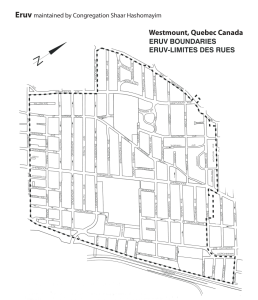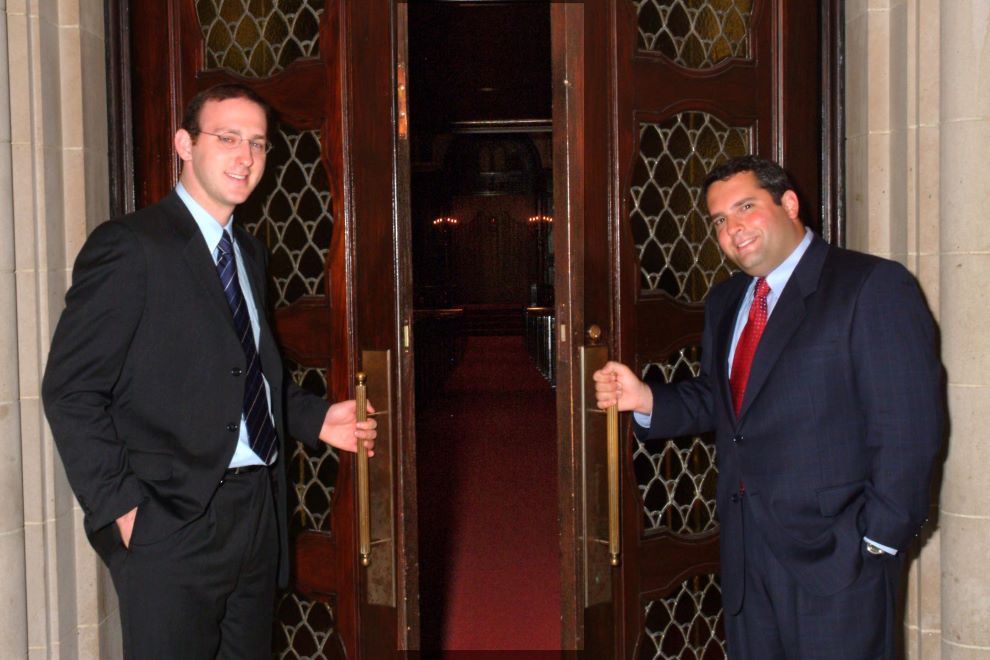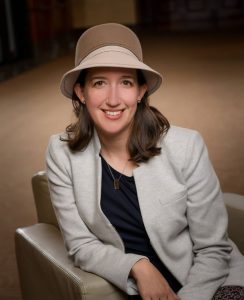Part 12: The 2000s & 2010s
The first two decades of the 21st century saw numerous important occasions for the Shaar. In the history of the Shaar, eras often are marked by changes in its leadership.
In 2004, two such major events occurred. In that year Rabbi Adam Scheier was appointed as the synagogue’s Rabbi, and Cantor Gideon Zelermyer was appointed as Cantor – both of whom remain with the synagogue until this present day.
Establishing the Westmount Eruv
After many years, an eruv was finally established in Westmount, a major accomplishment for the community. On the Jewish Sabbath—or Shabbat—there is a prohibition against carrying or transporting items from a private space into a public space. An eruv is an enclosure establ ished according to Jewish law (halakha)—typically using a thin wire—to connect existing city-structures which allows Sabbath-observant Jews to carry on the Shabbat without violating this prohibition. Thus, the establishment of the Westmount eruv was significant for Shabbat-observant Jews in the city and would make living in Westmount far easier. The agreement with the City of Westmount was reached in 2008 and the eruv was completed within a matter of weeks.
ished according to Jewish law (halakha)—typically using a thin wire—to connect existing city-structures which allows Sabbath-observant Jews to carry on the Shabbat without violating this prohibition. Thus, the establishment of the Westmount eruv was significant for Shabbat-observant Jews in the city and would make living in Westmount far easier. The agreement with the City of Westmount was reached in 2008 and the eruv was completed within a matter of weeks.
The First Orthodox Shul to hire a Female Clergy member
For many years, the role of women in the synagogue had been expanding. In Milly Lande’s remarks at the 1995 rededication of the chapel she stated, “our women are involved in every aspect of synagogue life.” This would become even more true when, in 2013, Rabba Rachel Kohl Finegold joined the Shaar, becoming the first ordained Orthodox woman of the clergy team of an Orthodox-practicing synagogue.
Leonard Cohen & You Want It Darker
On September 21, 2016, Leonard Cohen released the title track for what would be his final album You Want It Darker. Featured on this track was the Shaar Hashomayim’s men’s choir providing the backup vocals and Cantor Gideon Zelermyer as a featured soloist, chanting in cantorial style the Hebrew word Hineni—meaning Here I am (a word which has profound significance in the Hebrew Bible and its liturgy). Though Leonard Cohen had grown up in the synagogue, he never met nor spoke with the current choir or with Cantor Zelermyer (except via email). After Cohen’s death in October 2016, Cantor Zelermyer and the Choir would share in a Grammy Award for Best Rock Performance alongside Leonard Cohen, as well as a Juno Award for Album of the Year.



